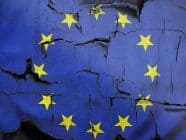Digital rights deserve just as much protection as the fundamental rights according to the European Parliament in Strasburg, which recently endorsed a report on “Digital Freedom Strategy in Foreign Policy.” The Dutch Member of Parliament, Marietje Schaake – undoubtedly the most “wired” politician in Europe – introduced the report which will hopefully influence future European policy in the field of digital freedom and the Internet. The report, approved in Strasburg with a wide majority, lays out many concrete initiatives which, if formally adopted by the Union, will make Europe one of the most progressive regions for rights in the digital sphere. In fact, the report affirms that “uncensored access to the open Internet, mobile phones and Information and Communication Technologies (ICTs) have impacted human rights and fundamental freedoms, exerting an enabling effect by expanding the scope of freedom of expression, access to information, the right to privacy and freedom of assembly across the world.”
Presentation of the report in the Parliament’s plenary meeting
The 71 points detailed in the report consider many highly contested issues pertaining to the digital world, such as social media which “enable[s] governments to engage in direct diplomacy” and ICTs in conflict areas “to promote peace-building activities at civil society level”. The report also emphasizes the need for transparent and collaborative decision-making in political discussion about the Web, stressing its essentiality in ensuring respect for the open and participatory nature of the Internet. The same is needed for the support of Net neutrality and the principle that Internet providers “do not block, discriminate against, impair or degrade, including through price, the ability of any person to use a service to access, use, send, post, receive or offer any content, application or service of their choice, irrespective of source or target.”
Moreover, the report describes how new technology is often used in dictatorial countries to violate human rights with censorship actions, digital surveillance and the tracking of netizens’ activities in order to arrest and silence them. To inspire EU-driven policy against these dystopian acts of democratic violations, the report calls for “a ban on exports of repressive technologies and services to authoritarian regimes,” and asks the European Commission to “address the fact that there are countries practicing the repression and control of citizens, civil society organizations and activists, while business in some countries involves a growing technological component in terms of the blocking of content and the monitoring and identification of human rights defenders, journalists, activists and dissidents.” Further, it calls on the Commission to “act against the criminalization of legitimate expression online.” Considering recent events in Syria and many other countries where the Internet has been used to help organize protests, these are matters of urgency.
According to Marietje Schaake, the European Parliament’s endorsement of her report confirms how “new technologies bring huge opportunities, but people can only really enjoy them if we also tackle the threats emerging from the rise of ICTs, for example by authoritarian regimes.” Her work aims to address a communitarian strategy in the technology field of EU foreign (and domestic) activity. Digital freedoms, as stated in the report, should be taken into full consideration in the EU’s relations with third countries in such a way that the European Union becomes a global player in the defense of the new rights generated by new technology. Just as with the No Disconnection Strategy revised and supported by Neelie Kroese, the European Union has once again demonstrated a concrete interest in digital and Internet-related issues. The hope is that Schaake’s report will have enough force to become the cornerstone for the European Commission and the European Council to, according to the report’s closure, “adopt a Digital Freedom Strategy in EU foreign policy as soon as possible.”
Tags: Censorship, Digital Censorship, Digital divide, Digital Freedom, European Union, Human Rights, Internet, Internet Surveillance, Marietje Schaake, Social media












































